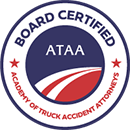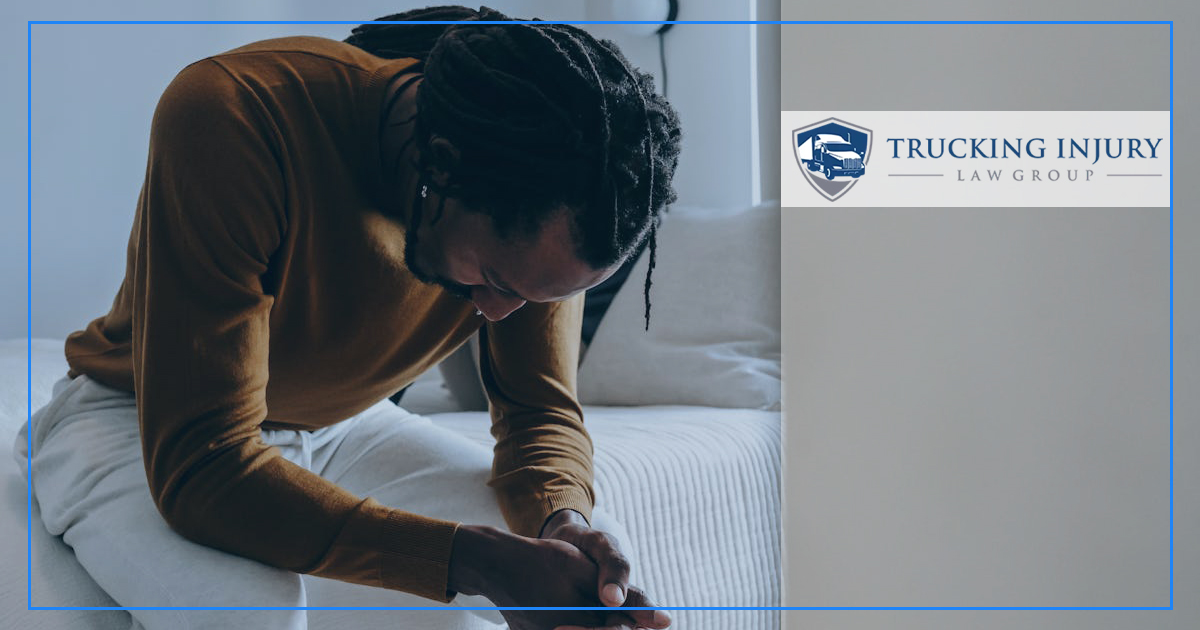Can a Truck Accident Cause Vehophobia?
Truck accidents happen every day. We see the devastating aftermath on the side of highways or interstates. So, what happens if you’re involved in a collision with a semi-truck, and although you walk away physically unharmed, you now have a fear of being behind the wheel of a car?
In this post, we’ll discuss what vehophobia is, facts about truck accidents, and what help is available to you in the aftermath of your truck accident.
Explaining Vehophobia
Simply put, vehophobia is the fear of driving, and it can happen to anyone for any reason.
With over 6 million passenger car accidents in the United States each year, it’s no wonder that some people develop this fear. We always drive past accidents, sometimes we’re involved in collisions, or we experience a near miss.
A near miss is an unplanned event that almost happens but doesn’t, and it’s usually something that would have caused physical injury. The immediate aftereffects of a near miss generally involve a surge of adrenaline followed by a sense of relief that nothing actually happened.
An example of this would be when you’re driving along a highway, and you see the large truck next to you start swerving into your lane. You have a moment of panic, thinking you’re about to be involved in a sideswipe accident, but then the truck driver corrects their vehicle, and everything is okay.
Of course, there are the unfortunate circumstances of collisions with semi-trucks. These trucks are huge and often weigh up to 80,000 pounds when pulling trailers laden with heavy cargo.
When tractor-trailers are involved in an accident such as a rollover collision or a jackknife accident, the results can be catastrophic and leave victims suffering not only physical injuries but psychological ones as well.
What Makes Truck Accidents So Traumatizing?
As mentioned previously, accidents with large trucks can be frightening or cause traumatic responses because of their sheer size and weight.
However, another factor is the variety of accidents in which semi-trucks can be involved. Many times, these accidents may just be rear-end collisions, but with large trucks, many more types of wrecks can occur.
Most of them happen so quickly that neither the truck driver nor the drivers of passenger vehicles can react in time to safely prevent harm or damage.
Data from the National Highway Traffic Safety Administration (NHTSA) shows that in 2021, there were 5,788 people killed and an estimated 154,993 injured in traffic crashes involving large trucks. According to the data, 72% of the fatalities and 71% of those injured were occupants of other vehicles.
With statistics like these plus the first-hand experience of being involved in a collision with an 18-wheeler, it is completely normal and understandable to suffer from side effects following your accident.
What to Do If You Suffer from Vehophobia
Our legal team at the Trucking Injury Law Group wants you to know that we understand the trauma you’ve experienced. We also want you to know that you are not alone and, much like many other phobias, the fear of driving can be overcome with help from medical professionals.
According to the Mayo Clinic, many people suffer from specific phobias such as vehophobia. They may experience some or all of the following symptoms when faced with or thinking about your phobia:
- Feeling intense fear, anxiety, or panic
- Having trouble performing daily activities
- Having physical reactions such as trouble breathing, rapid heartbeat, or sweating
- Feeling like throwing up, or feeling dizzy or faint
- Having anxiety that becomes worse as you get closer to your phobia (such as getting back behind the wheel of a car after your accident)
Alongside this non-exhaustive list, if you suffer from a phobia, you may also understand that your fears are not reasonable, but that you have no control over them.
Seek Guidance from a Medical Professional
Feelings of fear or anxiety on their own are not necessarily a bad thing, but they can become a problem when they overcome your life to the point that you change the way you live. Terrifying experiences such as a truck accident can lead to:
- Mood disorders: Such as depression or post-traumatic stress disorder (PTSD)
- Substance abuse: Such as misuse of drugs or excessive alcohol
- Strain on loved ones: Such as relying on your family members or friends to drive you around
- Social isolation: Such as avoiding all vehicles when possible or even places where a lot of vehicles might be. This could lead to limited time with your peers or family members because the fear of driving keeps you from leaving your home.
If you suffer from vehophobia and it is affecting your life to this extent, there are doctors and therapists available who can guide you and help you navigate your fears.
There is no one-size-fits-all method for dealing with any sort of mental health concern. However, it’s in your best interest to seek out professionals in your area who specialize in post-accident phobias.
The bottom line is that truck accidents are often devastating and can most certainly cause vehophobia. But, no matter what type of truck collision you’ve been involved in, the Trucking Injury Law Group can help you seek compensation for your accident and assist you in moving forward.
The fear of driving is not uncommon, and with the right support system in place, you can recover from your traumatizing experience.






